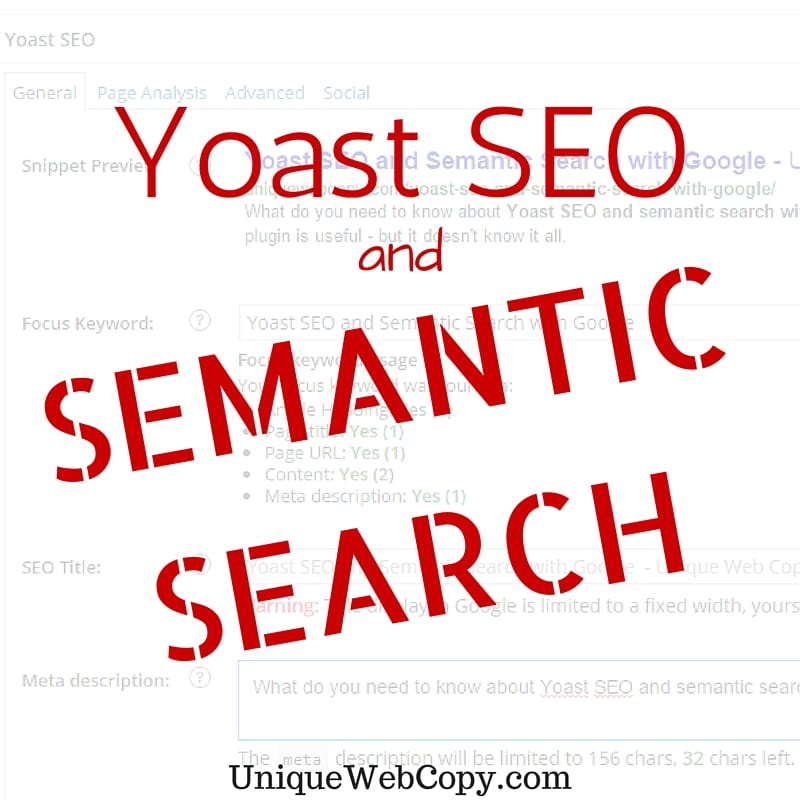When you’re relying solely on one SEO tool, you might get the wrong idea about how “healthy” your pages are when it comes to SEO and Google.
Yoast SEO is a fantastic tool, especially when you need a fast, easy way to add meta descriptions and meta titles.
However, it doesn’t tell you anything valuable when it comes to the SEO on your page – only that you’ve used your target keyword at least once in every important area.
Yoast SEO and Semantic Search with Google
You’ll notice that Yoast SEO and semantic search with Google aren’t necessarily on the same page. Sure, Yoast can tell you that you’ve included your keyword — but you need to know that Google is smart, and so is their semantic search algorithm.
Watch the video. You’ll see that Yoast SEO is limited by exact match keywords. That means if the keyword you input isn’t an exact match to something in each category they look at, they will think that your SEO is not as good as it should be.
Yoast looks at whether your exact-match keyword is in your:
- Article heading
- Page title
- Page URL
- Content
- Meta description
Here’s the Yoast evaluation of this post:
How Hummingbird Changed the Way the Googlebot “Sees” Things
With Hummingbird, Google revamped the way search engines find and index website content. They now look at things in context rather than by counting the number of times you mention your keyword on a page.
So what does that mean to you?
You can use variations of your key terms and Google will still understand what your page is about.
Google isn’t going to have any trouble understanding what this page is about.
In fact, it’ll get ranked and indexed, and you’ll probably be able to find it whether you type an exact match to my “keyword” or not.
Why? Because of their super-smart algorithm that picks up on cues, synonyms and… well, semantics.


